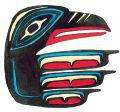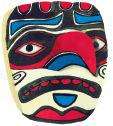typically repair themselves in a matter of days. Quileute werewolves are not indestructible, and although killing one is easier than killing a vampire, it still takes supernatural strength or great skill to seriously wound a werewolf.
An exception to this rule is vampire venom. In a werewolf‘s system — whether he is in his human or wolf form — venom does not begin the process of transformation into a vampire.
Rather, it acts as a poison that retards the healing abilities of the werewolf. Venom alone will not generally kill a healthy werewolf; however, in combination with other injuries, it can be fatal.
MORTALITY:
Once a werewolf transforms, his aging speeds up until he reaches the age of maturity, roughly twenty-five. At this point, as long as he continues to phase, he remains at that age. It‘s possible that a werewolf could choose to live this way forever and enjoy the same limited immortality as a vampire, but most Quileute werewolves give up phasing in order to grow old and die alongside their family and friends. Once a werewolf gives up phasing altogether, he slowly begins to age again until his aging reaches the normal human speed.


LIFESTYLE AND BEHAVIOR
TRIBE STRUCTURE:
The members of the Quileute tribe live as a group in the Quileute Nation on the La Push reservation and are governed by a council of elders. The tribe consists of everyone who is a descendant of another Quileute. The Quileute pack is a subset of the tribe; every member of the pack is a member of the tribe, but the majority of the tribe are not members of the pack.
Moreover, most members of the tribe are not aware of the reality of werewolves. Only the members of the council and the pack are in on the secret. While the tribal elders work closely with the pack, only those individuals with the ability to phase are actually classified as members of the pack. The leader of the pack is referred to as the Alpha. The role of Alpha wolf is inherited; the oldest descendant of the previous Alpha has the rightful claim to the position. If, for any reason, the oldest descendant of the last Alpha refuses the position, the Alpha title can be claimed by either the next closest relative of the last Alpha or by the chronologically oldest member of the pack. In such a situation, each member of the pack must initially choose to support this Alpha candidate. After that support is given, the Alpha has the ability to impose control over the other members of the pack, and no member can refuse the Alpha‘s commands.
According to tribal tradition, the Alpha wolf is not only the head of the pack, but also the chief of the entire tribe. As the tribe is now governed by council, the Alpha takes the position of the most senior tribe elder, despite his age.
As more vampires enter the area in response to the resident coven, even more tenuous bloodlines result in new werewolves.
One factor affecting which members of the tribe transform is the number of vampire scents in the area. Throughout Quileute history, the pack has usually consisted of three members.
With most vampires traveling alone or in pairs, there was never a need for more than three werewolves to defend Quileute land. However, with a large vampire coven settled in the area, the tribe members with the strongest blood ties to the former pack are not the only ones who transform. Everyone in the tribe who has any relation to past wolves has a chance of joining the new pack. As more vampires enter the area in response to the resident coven, even more tenuous bloodlines result in new werewolves.
Recently, as a result of the size of the Quileute werewolf population and the accompanying tension, the pack split into two separate groups. For the first time in Quileute history, there are currently two Alphas, each with his own pack. There are presently seventeen members of the two werewolf packs.

RANK:
The wolf pack has a very complex system of rank that helps keep them organized and prepared for all eventualities. The Alpha‘s absolute authority over the pack makes them an effective fighting force, and if something happens to the Alpha, there is no debate about how to proceed. The pack does not lose effectiveness due to confusion.
Every Alpha has a second in command — referred to as his Second — who immediately assumes control if the Alpha is incapacitated. Ranking under the Second is the Third, who is next in line to act as Alpha.
In the case of a large pack, each Second and Third has his own Second and Third, and so on down, so that each wolf has someone in line to step into his responsibilities within the pack if something should happen to him. In a large pack, during a fight the wolves tend to operate in three-wolf pods.
IMPRINTING:
Some werewolves experience a bonding incident called imprinting, in which they become unconditionally tied to a human of the opposite sex. There are several theories on why imprinting occurs: Some believe that imprinting ensures the passing on of the werewolf gene; others believe that imprinting happens to produce larger, stronger wolves in the next generation. The werewolves do not know the answer for certain.
Imprinting occurs only after a werewolf‘s first phasing. It can happen with anyone, regardless of previous personal feelings. Imprinting happens the first time a werewolf sees the human object of his imprinting; if the werewolf does not react to a human the first time he sees her after he phases, he will never imprint on that human. If the werewolf does imprint, he is forever changed. From the second he sees the object of his imprinting, he will do anything to please and protect her. All other commitments in his life become secondary, even his commitment to the pack.
The relationship between the imprinting werewolf and the human imprinted upon is one of total acceptance and support on the werewolf‘s part. No matter the age or living conditions of the human, the werewolf automatically becomes whatever the human wants him to be, at the loss of his personal free will. If the human is young, the werewolf becomes the perfect platonic playmate and protector. As the human ages and changes, the werewolf instinctively switches roles to fulfill the human‘s needs.
It is against pack law for any werewolf to kill the object of another werewolf‘s imprinting. Such an act would be devastating not only to the wolf who suffered the loss, but to the entire pack. Given the telepathic ability of the pack, each pack member would suffer the pain of the wolf whose mate had been killed. Even if the death of a wolf‘s mate was an accident, the two wolves involved would fight to the death.

ANCIENT QUILEUTE HISTORY
The Quileutes have a detailed history of how they came to be shape-shifters, and how that aspect of their nature was focused by their first contact with vampires. Essentially, the early Quileutes had the ability to use astral projection. When this ability led to a coup, the rightful chief put his spirit into the body of a wolf. His progeny were

